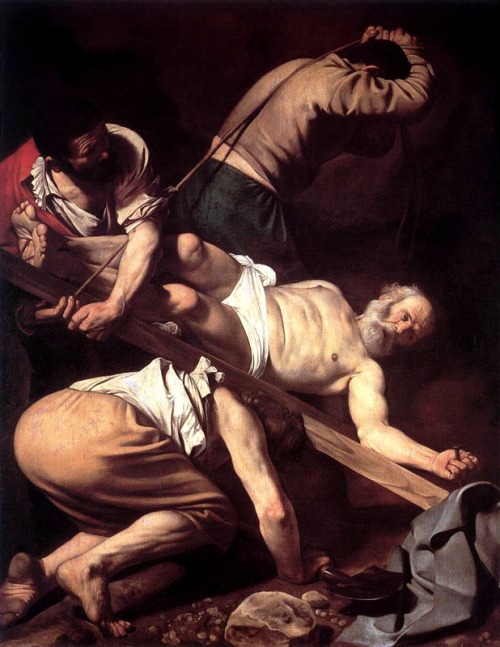
The Composition Date for the Book of Acts
The book of Acts is essential to understanding the birth and early growth of the first-century church, and for the most part it is straightforward and not hard to understand. However, some historians and scholars disagree about its historical accuracy and when it was written, and as you research Acts you will be confronted with some of these disagreements. A major disagreement concerns the year that Luke finish writing and publicize the book of Acts. This blog argues that the early date of Acts is the most defensible and reasonable conclusion with respect to when it was written. There are two compelling reasons why Acts should be viewed as having been written before the outbreak of the Neronian persecutions (ca. early AD 65 or early AD 66). First, Luke ended his history of the early church with a description of Paul’s condition, writing that, “For two whole years he lived in his own rented place and welcomed everyone who came to him. He continued to preach the kingdom of God and to teach about the Lord Jesus Christ with perfect boldness and freedom” (Acts 28.30-31). To be sure, as Luke wrote Act if he was aware of Paul’s fate and the Empire’s attempt to eradicate Christianity, then ending the book with such a cheery description would have been unthinkable, if for no other reason that such an ending would make Luke appear completely incompetent since most of his readers would have either already known about Paul’s fate, or would eventually learn what truly happened to him. Some argue, however, that Paul’s inevitable fate was not important to Luke, and that Luke’s purpose was more “theological” than “historical.” This is not a well-defended position simply because the book contains far more historical data than explanations concerning theological subjects. Moreover, the book is titled “Acts of the Apostles” instead of “The Beliefs of the Apostles,” and its title is “Acts” precisely because it overwhelmingly focuses upon the activities, accomplishments, and deeds of the early church and its leaders. Of course it also contains theological content, but this is unavoidable since the focus and purpose of the church is theological in nature. Nevertheless, if Luke was primarily concerned with the church’s theology, then more content within Acts would look more like what is found in Acts 15 (i.e., the Jerusalem Council), but it does not. Luke’s primary purpose in Acts is clearly more descriptive than prescriptive, in other words he focused predominantly on explaining and documenting the church’s birth and subsequent growth from a small sect within Judaism, to its inclusions of Gentiles, and to its ultimate arrival to the heart of the Empire.
A second reason for concluding that Acts was composed before the outbreak of the Neronian persecutions is that Luke placed a high value upon persecution and martyrdom accounts and included them within his history of the early church whenever he could. This is obvious from his inclusion of the martyrdoms of both Stephen, the first Christian martyr, and apostle James the brother of John and a son of Zebedee; as well as various riot accounts found throughout the book. If Luke had known about the martyrdoms of both Paul and Peter, arguably the two most important leaders of the first-century church, then he would have assuredly provided accounts documenting their deaths, or at least references to them in his history of the church (not to mention the martyrdom of Jesus’ brother James, ca. AD 62). But instead of references to the deaths of these significant leaders, Luke provided travel records throughout Acts (e.g., Acts 27.1-28.10), some of which are rather uneventful. Additionally, not only does the book show no hint of the fates of these important leaders, but as Carson and Moo observed, the exact opposite is true, Luke seems to portray a rather positive outlook for the church’s leaders, as well as a healthy relationship between the church and the Roman Empire (CM, Introduction to the New Testament, 298-300). Again, such an outlook would have been completely inconceivable if Acts was written any time after the beginning of Neronian persecutions. In fact, once Nero condemned Christianity as subversive and began targeting its leaders for execution, then Christianity became an illegal religion its eyes of the Empire. Moreover, Nero’s ruling against Christianity became the legal basis for all of the Empire’s future persecutions of church over the next couple of centuries. Consequently, if Luke wrote Acts sometime after the cessation of the Neronian persecutions, then his book would not have improved the image of the church, but would have actually endangered individual churches and other Christians by documenting where they could be found and who were some of its remaining leaders. We should credit Luke with having more intelligence than to have written such a potentially dangerous book if he was aware of the Empire’s lethal hostility towards the church. The Empire had claimed the lives of some of his closest friends, what could he have possibly gained by composing a work that would have only endangered others?
Think about it this way, if 3 years ago someone wrote a book about the rise of Isis and its condition, then the book would have concluded with some ambiguity with respect to its future. However, if one wrote a book on Isis 10 years from now, it would be inconceivable to not explain or at least reference its collapse. Of course, Isis’ ultimate defeat would not have to be the book’s main purpose, but to completely ignore its demise as an organized geo-political military force would be a rather glaring omission, one that would make any author appear completely out of touch. Nevertheless, some scholars still make speculative conjectures promoting a late composition for the book of Acts; however, the more reasonable conclusion is that Luke completed it near the end Paul’s first imprisonment or soon after his release, sometime in the early to mid AD 60s, probably no earlier than AD 62. Additionally, such a date also has obviously significant ramifications for estimating the date for Luke’s composition of his Gospel. Many secular scholars who have a biased against the supernatural and prophetic natural of Luke’s Gospel must date the composition of Acts later since they also date the Gospel of Luke considerably later. Since Acts was composed after Luke’s Gospel, then in their view the book of Acts must also be dated much later as well. Nevertheless, such conjectures and speculations are not well defended given the available historical evidence.
Doc.
Copyright © Monte Shanks, 2010
